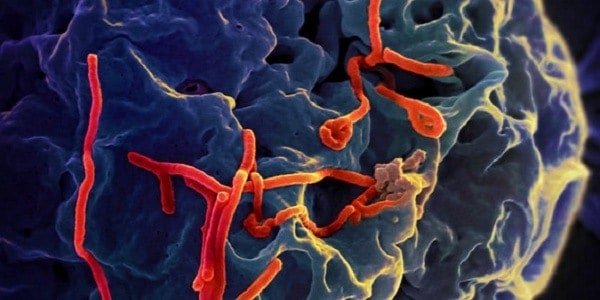A cold makes you gain weight

Scientists have discovered another reason for overweight.
They concluded that adenovirus 36, the cause of upper respiratory infection, may lead to obesity.
Infection with this virus is definitely not the main cause of obesity, but it significantly influences weight, says Richard Atkinson, director of the Richmond Research Center and professor of pathology at the University of Virginia.
This is a slow process that changes the dynamics of metabolism. Obesity can occur about a year or two after infection, says the scientist.
The virus stimulates the stem cells of the adipose tissue in the elderly, as a result of which they begin to form even more fat cells.
“If we look at a piece of adipose tissue from an infected animal and compare it to a sample from a healthy animal, in the first case the amount of fat cells turns out to be larger, and the fat cells themselves are also larger,” says Atkinson.
p>
“If we infect tissue culture stem cells, they will then turn into fat cells, even if no other substances are added to the culture that regulate this process.”
Recent research shows that adenovirus 36 is associated with the development of obesity, especially in children.
It has also been shown in experiments that this virus causes the accumulation of excess weight, mainly due to the accumulation of adipose tissue, in chickens, mice , rats and monkeys.
At the same time, adenovirus 36 not only leads to weight gain, but can also reduce the level of cholesterol and triglycerides in the blood.
This means that a certain fragment of the virus can serve as a basis for the development of new preparations for the treatment of diabetes.
Although obesity is a risk factor for the development of diabetes and cardiovascular diseases, the fat accumulated as a result of the action of the virus feeds exclusively on adipose tissue and do not penetrate the heart and muscles, says Nikhil Dhurandhar, a professor at the University of Louisiana.
Dhurandhar and his colleagues conducted a study involving 1,400 people. According to the results, people with a positive result in the analysis of antibodies to the adenovirus (a positive result means that they were infected – b. r.) gained significantly more kilograms than those who were not infected.< /p>
At the same time, the blood sugar levels of the infected participants were generally lower than those of the control group. “All this does not mean that this virus can be used as a drug against diabetes. But there is a possibility that we will be able to determine which of all the viral proteins is responsible for this effect.
Then we will be able to study it and develop new medicines based on it,” says Dhurandhar.
Atkinson has developed an experimental vaccine against adenovirus 36, although at this point it is still a long way from commercialization. He clarified: “Since the virus is completely eliminated from the human body about a month after infection, and when a person gains weight, it definitely cannot infect anyone, so you don’t have to worry.”
The bottom line is that if you don’t want to put on weight as a result of a cold, wash your hands more often and stay away from people who sneeze and cough, Dr Atkinson sums up.



